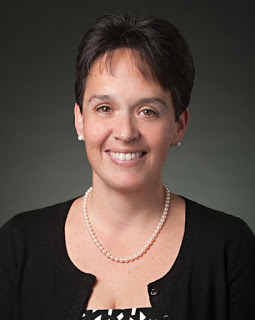Katie Davis, Director of Engineering at Ingersoll Rand

Katie Davis, Director of Engineering at Ingersoll Rand
#HearHerStory / @womeninmfg

At Women in Manufacturing, we are committed to supporting women in the manufacturing sector. We firmly believe that mentorship and community-building will help attract and retain women in manufacturing. As part of our mission, we feature on our blog the stories of women we admire who are currently working in manufacturing. The following is the latest installment of our "Hear Her Story" series.
Please tell our readers a little bit about your job and what your work looks like every day.
I am the director of engineering operations excellence at Ingersoll Rand. My daily activities revolve around supporting our company’s engineering teams with tools and processes that enable them to best serve our customers. I work to ensure that there is standard work driving the creation of components and products, as well as efficient system tools that enable ready access to the design codes and standards required to meet the needs of the industry and our customers. Ingersoll Rand advances the quality of life by creating comfortable, sustainable and efficient environments. It is my responsibility to ensure that our engineering organization has efficient tools and processes to deliver on our company commitments.
How did you arrive at your current position? What attracted you to a career in manufacturing?
I am a mechanical engineer by profession, and I have had some extraordinary opportunities for growth throughout my career. I began working in engineering design for Bechtel at a nuclear facility, and I was able to become a licensed professional engineer (PE) as a result of the five-year assignment. My next career move took me to the U.S. Air Force, where I was involved in the design and construction of ground support equipment for the USAF fleet. This was a fantastic opportunity for me to lead projects and supervise the construction and manufacturing of very large pieces of equipment. During both of these assignments, I became very interested in several of the manufacturing processes, like welding, and I decided to pursue a career in the manufacturing industry. Since joining Ingersoll Rand, I have had fantastic opportunities to work in all areas of the manufacturing business—from engineering design and strategy development, to information technology and quality.
At WiM, much of our work is dedicated to refuting outdated stereotypes about the manufacturing sector: stereotypes like the workplaces are dirty and dangerous and that the field and skills required are a better fit for men. Have you encountered stereotypes like these in your education or career and how did you overcome them?
I really did not encounter any stereotypes about manufacturing during my education, but I can remember one occasion where I surprised my male peers by accepting an assignment. I was the technical authority over a 70-foot tower that was used for maintenance on the tail of a C-5 Aircraft, and the tower required a weld inspection. I met the squadron leader at the base of the tower, and he offered me the option of staying on the ground. To his surprise, I donned the lanyard, ascended the tower, completed the inspection and approved the equipment for use. Not only did I gain the respect of my male peers, but I broke the stereotype. I did get a little grease on my pink polo, but it was worth it. I learned, first-hand, how my customer used the product and I gained an understanding of the impact that some of our manufacturing processes had on product reliability. It is completely ok to wear your polos in pink, and grease, dirt and oil are signs of accomplishment!
Research shows that women, especially women in STEM fields, do better if they have a mentor. Has mentorship played any role in your career?
Mentorship has definitely played a role in my career, from my education to present day. I was fortunate enough to attend an engineering and robotics academy in high school, and I had a fantastic teacher who recognized my potential in the sciences and encouraged me to pursue engineering. I have had several mentors throughout my career, but the most influential mentor in my career came about after joining my present company. He took a personal interest in my development and challenged me to move beyond engineering into engineering leadership. He supported me with challenging assignments in project management, manufacturing processes, engineering design, and getting my MBA. It was that encouragement and support that enabled me to move closer to reaching my full potential.
One of the key findings in WiM’s survey is that there is significant overlap between what young women want in careers and the attributes of careers in manufacturing today. But the survey also found that, too often, young women are not aware of the opportunities available in manufacturing. What do you think can be done to spread the word to women about career options in modern manufacturing?
Participation in events like National Engineer’s Week and National Manufacturing Day are great activities that involve community outreach and offer young women the opportunity to see where careers in manufacturing can take them. I also believe that women who work in manufacturing should engage local schools and universities on opportunities to speak to STEM classes, participate in sponsored projects, and mentor young women before they make choices about their careers.
Our survey also found that the majority of women in manufacturing today would recommend the sector to young women considering career options. Would you recommend a career in manufacturing? And, if so, why?
Of all of the career opportunities I have had in the last 16 years, manufacturing has offered me the greatest growth, on both a personal and professional level. There is an endless array of career possibilities—from production to information technology and engineering to finance—that are available to young women through the manufacturing industry.
